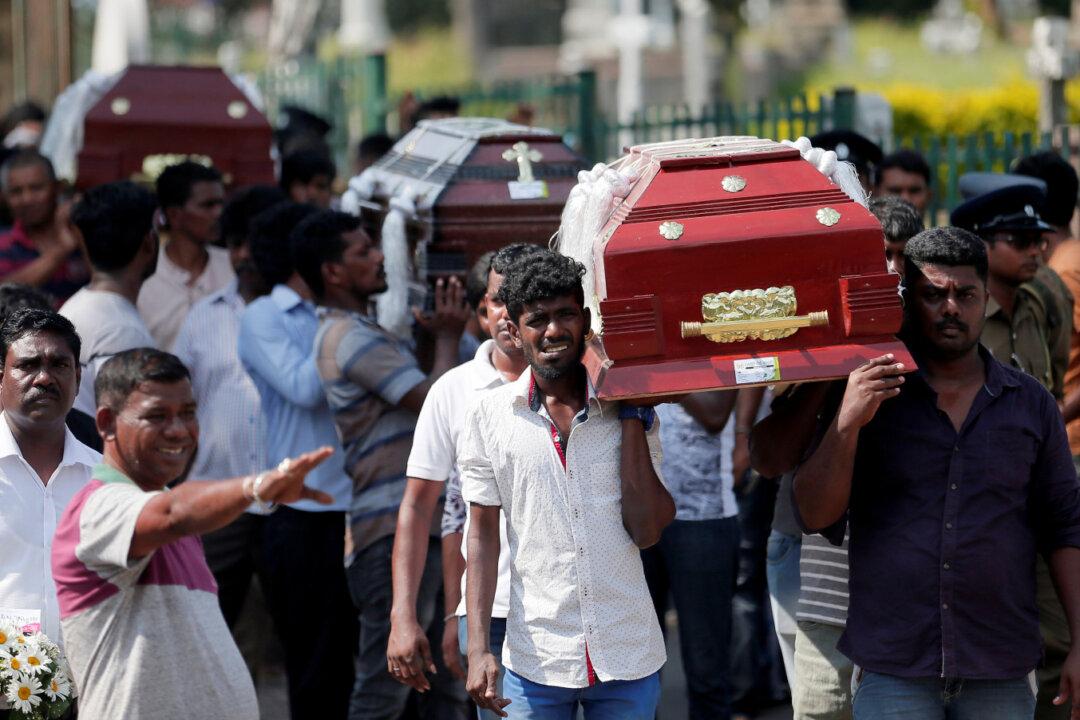COLOMBO, Sri Lanka—The suspected leader of the terrorist group Sri Lankan authorities said carried out a series of Easter Sunday bombings died in the blast at the Shangri-La hotel, one of six hotels and churches targeted in the attacks that killed at least 250 people, officials said Friday, April 26.
Police said on an official Twitter account that Mohamed Zahran, the leader of the local terrorist group National Towheed Jamaat known for his vitriolic extremist speeches on social media, had been killed in one of the nine suicide bombings.





